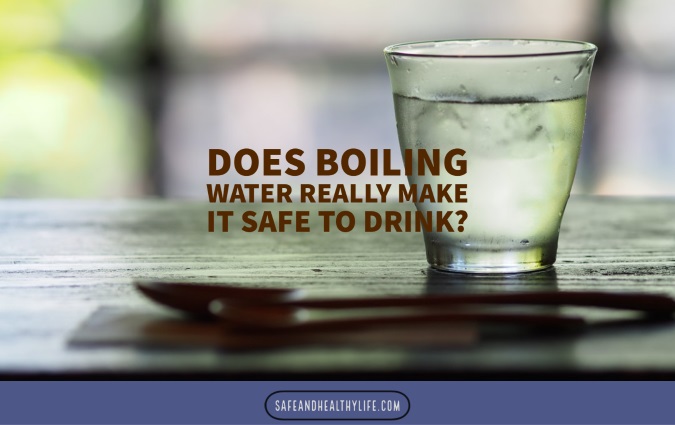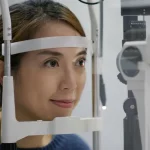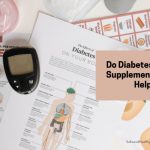
The general assumption is that if you boil water it’s safe to drink. This is a fall-back position for when water supplies are damaged and you’re reliant on any water you can find.
It seems like good advice as heat is a great way to kill off many pathogens and bacteria.
However, this isn’t as straightforward as it would appear. Boiling water does improve its quality and potentially make it safe to drink. But, it can’t be guaranteed.
The Issue With Boiling Water
The first thing to note is that if you’re going to boil water to kill off bacteria simply bringing it to the boil is not necessarily enough.
Some bacteria are surprisingly tough; you need to bring it to the boil and allow it to keep boiling for 5-10 minutes to ensure all bacteria are killed.
That means using a stove as opposed to your kettle.
The secondary issue is that bacteria are not the only thing you should be concerned about in your water. There are many other potential contaminants such as pesticides, fertilizers, heavy metals, and even minerals. Some of these can cause immediate harm, others will damage your health in the long-term.
You can’t remove these compounds by simply boiling the water.
Home Complications
It’s worth noting that the water treatment plant eliminates these issues, giving you water that is safe to drink. But, the water can be re-contaminated between the plant and your home as it goes through hundreds of miles of pipe.
These pipes are not monitored, the smallest of leaks can go undetected but allow water out and bacteria in. Some ground contaminants are also able to leach their way through the pipe and into your water supply.
If you’re at home and want to ensure the water you’re drinking is safe, the easiest and best method is to use a water filter. You can chat with the specialists in water filters Melbourne to find out which system best suits your needs and budget.
It’s important to speak to the professionals as there are several viable filters and you’ll need to decide between a whole house or single-tap systems.
The experts can ensure you have all the facts, allowing you to make the most appropriate decision for you and your family.
When Boiling Is The Only Option
If a filter is not available and you need to purify the water then boiling is an acceptable method, but boiling is only part of the process.
In the process of boiling bacteria are killed off. More importantly, the water is turned into gas, known as steam. Because water turns to gas at a lower temperature than the compounds in the water, the gaseous form of water is pure, effectively free from contaminants.
In essence, if you place something above the boiling water the steam will hit this cooler surface and condense, turning back into liquid form. You can then capture this water and have pure water that can be safely drunk.
It does take longer. But, providing you use clean utensils you’ll end up with pure water that is safe to drink. This is known as distillation.
Boiling water alone isn’t enough. If you’re at home the water filter is a much more convenient solution. If you’re I the wilderness then you’ll need to collect enough bits together to distill the water.
Drinking it just boiled should be a last resort that will keep you alive, although possibly cause longer-term issues.
The Safety Of Boiled Water
Boiling water will kill many of the bacteria in the water. However, it is worth noting that this doesn’t keep bacteria out of the water.
Drinking it after it’s boiled is fine. But, in order to save it for later, you’ll need to keep it in a sealed bottle and put it in a refrigerator. In this instance, it will last for 2-3 days.
However, if you leave it at room temperature out of direct sunlight it will only be good for 24 hours. After this time, new bacteria will appear, potentially making it unsafe to drink.
It is worth noting that a bottle of water left in direct sunlight for 24 hours will be as safe as boiling water.
The ultraviolet light emitted by the sun will kill bacteria and viruses in the water. It’s even possible to get ultraviolet filters that can be slid into your water bottle, reducing the need for sunlight.
Disadvantages of Boiled Water
If you’re drinking boiled water you must let it cool a little first. If you don’t you’re likely to get minor burns in your mouth and damage your esophagus. It’s even possible to cause small scars in your digestive tract.
Boiled water is believed to improve the circulation in your body and to help regulate bowel movements.
However, consume too much of it and you’ll disrupt your electrolyte balance, diluting them. This can lead to an inability to sleep properly and even leave you breathless.
Final Thoughts
In an emergency situation boiling the water may be the best option available. However, if you’re at home or preparing for the wilderness, there is an abundance of filters available that will do the job better. It’s worth investigating further and investing in one, or more.
About The Author:
Karl Adams considers himself an expert in the health and beauty industry. He has a passion for learning all he can about health and beauty. He also enjoys providing beauty tips to those looking for ways to improve their looks and feel better about themselves.
Throughout the years he has dedicated his life to learning about the health and beauty industry. He has extensive experience with using a range of beauty products and enjoy reviewing all kinds of health products as well.




